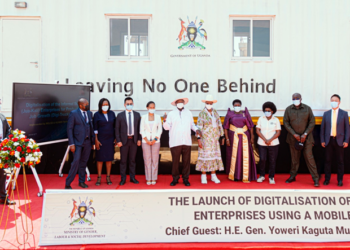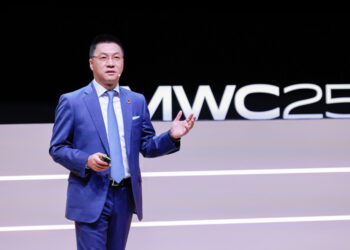I overheard a talk that piqued my interest as I sat in one of the most prominent coffee nooks, which serves as a meeting spot for many of our esteemed tech gurus. Three people were having a long talk, complaining about how Uganda’s lack of an internet protocol was impeding their technological progress.
Their remarks touched a nerve in me and made me wonder a number of things. Without its own internet protocol, how might Uganda’s technological innovation grow smoothly? I saw that this basic infrastructure was necessary for the nation to move toward technical self-sufficiency and international competitiveness. I embarked on my search to find out whether Uganda with all the gurus in tech we don’t have an internet protocol.
For starters, these days, having a connection to the internet is practically as necessary as having access to power and water in the digital age. It fosters economic growth, creativity, and communication by tying together people, companies, and nations. Like many other nations, Uganda depends heavily on the internet for many facets of daily life. But within the vastness of cyberspace, there is a framework that is less well-known but incredibly important: the Internet Protocol (IP). This framework influences how Ugandans interact with the online world.
The fundamental mechanics that allow for this connectedness are often mysterious, even if many Ugandans may be accustomed to utilizing the internet through their laptops, smartphones, or other devices. The core of the internet is the Internet Protocol, which controls how data packets are sent between devices connected to different networks. Comprehending this protocol provides insight into the way data moves via the extensive network of linked devices.
The Internet Protocol, at its heart, is a system that gives each device connected to a network a unique numerical identifier, or IP address. Data may be precisely routed from its source to its destination thanks to these addresses, which function as virtual IDs. Every equipment linked to the internet in Uganda, like any other place in the globe, is given an IP address. These addresses are usually a string of numbers separated by commas, such as 192.168.0.1, for example.
Why Do Ugandans Need to Care?
It is essential to comprehend a Ugandan Internet Protocol for a number of reasons:
Security: By understanding IP addresses and the data transmission protocols over networks, users may enhance their defenses against cyber threats including malware, phishing, and hacking. Ugandans may protect their digital privacy and security by being proactive and aware of the hazards involved in sharing sensitive information online.
Network Performance: A number of variables, including IP routing, network congestion, and quality of service, can affect how effective and dependable an internet connection is. Users can choose internet service providers (ISPs) wisely and optimize their network setups for improved performance by being aware of how data flows across networks.
Digital Rights: As Ugandans use the internet more and more, concerns about online censorship, free speech, and digital rights have gained attention. Ugandans can effectively advocate for policies that promote internet accessibility and openness while mitigating the risks of censorship and surveillance by possessing an awareness of the technical components of internet protocols.
Innovation and Development: By creating locally relevant applications and services, utilizing cutting-edge technologies like the Internet of Things (IoT), or making contributions to the global digital marketplace, Ugandans can engage more actively in the digital economy with a deeper understanding of internet protocols.
Having done my research, i came to find that Uganda is the only African country having membership in 3GPP an organisation that continues to be the creation of the Mobile Broadband Standard, with an increasing emphasis towards connecting the internet of things – whether the need is for ultra-reliable low latency communications at one end of the scale or for energy efficient low-cost, low-power sensors and devices at the other. Uganda is also a member of ETSI
In essence Ugandan tech gurus and government entities need to take advantage of this protocol, plug-in and build on top of it, visit these two websites www.etsi.org and www.3gpp.org and discover the only protocol in Africa which belong to Ugandans but even our government tech gurus don’t know about. To discover and plug in to start using it one must email those two organisations.
Do you have a story in your community or an opinion to share with us: Email us at editorial@watchdoguganda.com













